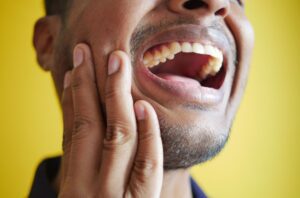Don’t Let Time Outdoors effect your Oral Health!
Summer is just around the corner and what is better to do in Alaska than taking a hike? With the gorgeous weather looming and school ending soon, families and individuals are looking forward to a great mountaineering experience. However, any outdoor activity requires an adjustment in one’s lifestyle, even if it’s just for a day. Dental hygiene would be a perfect example of such adjustment.
Your Teeth in the Mountains
When you go hiking, it only makes sense to bring the most basic necessities, especially because you will be carrying everything in a single backpack. If you bring too much stuff, you will definitely not last long in your hike. That’s why packing for a hike can be tricky. Your dental care products may not find enough space inside your bag and ultimately, you will have to forego the regular brushing, flossing and gargling. Here are some simple tips to help you ensure that your teeth won’t be grimy and filthy after a day in the mountains.
- Bring a travel toothbrush with travel-sized toothpaste.
You won’t need to bring a whole tube of toothpaste unless you plan on living in the mountains for a month. A few days’ worth of toothpaste can be kept in the side pocket of your bag. Travel toothbrushes are often foldable and easy to pack.
- Clean water is a luxury but bring as much as you can.
Carrying a toothpaste and toothbrush is easy. What makes dental hygiene challenging is the limited source of clean water in the mountain. If you want to risk getting Giardiasis (beaver fever) or drinking fecal matter from all sorts of living things in the mountain, go ahead and drink from that seemingly clear-looking stream.
Bring your own supply, preferably as much water as you possibly can carry. You can find water bottle carriers that can be attached to your arms and legs. However, if you really need more water, you can decontaminate it by boiling. It’s easy enough to carry a small pot and some matchsticks. Make sure the water has reached a full boil, though, to kill any microorganisms living in it.
- Use a small stick as a toothpick.
If you don’t have floss or you’ve run out of clean water for brushing your teeth, you can use a small stick to clean the food bits stuck between your teeth. However, make sure you know what kind of plant the stick belongs to and that it’s safe to use inside the mouth. Some plants are particularly poisonous and may cause allergic reactions. You should be familiar with poisonous plants as part of standard hiking preparation.
- Use a mouthguard for protection.
Mountaineering is a dangerous sport and you never know when an accident can happen. It’s best to be prepared and protect your teeth, especially in case of a fall. Mouthguards can prevent teeth from cracking when you get injured during a hike.
Right after your hiking expedition, make sure your teeth are in perfect condition by visiting our dental clinic in Anchorage, Alaska. Give us a call at 855-976-0394 or set an appointment online via our website. Our expert dentists will be happy to give you an oral exam.






